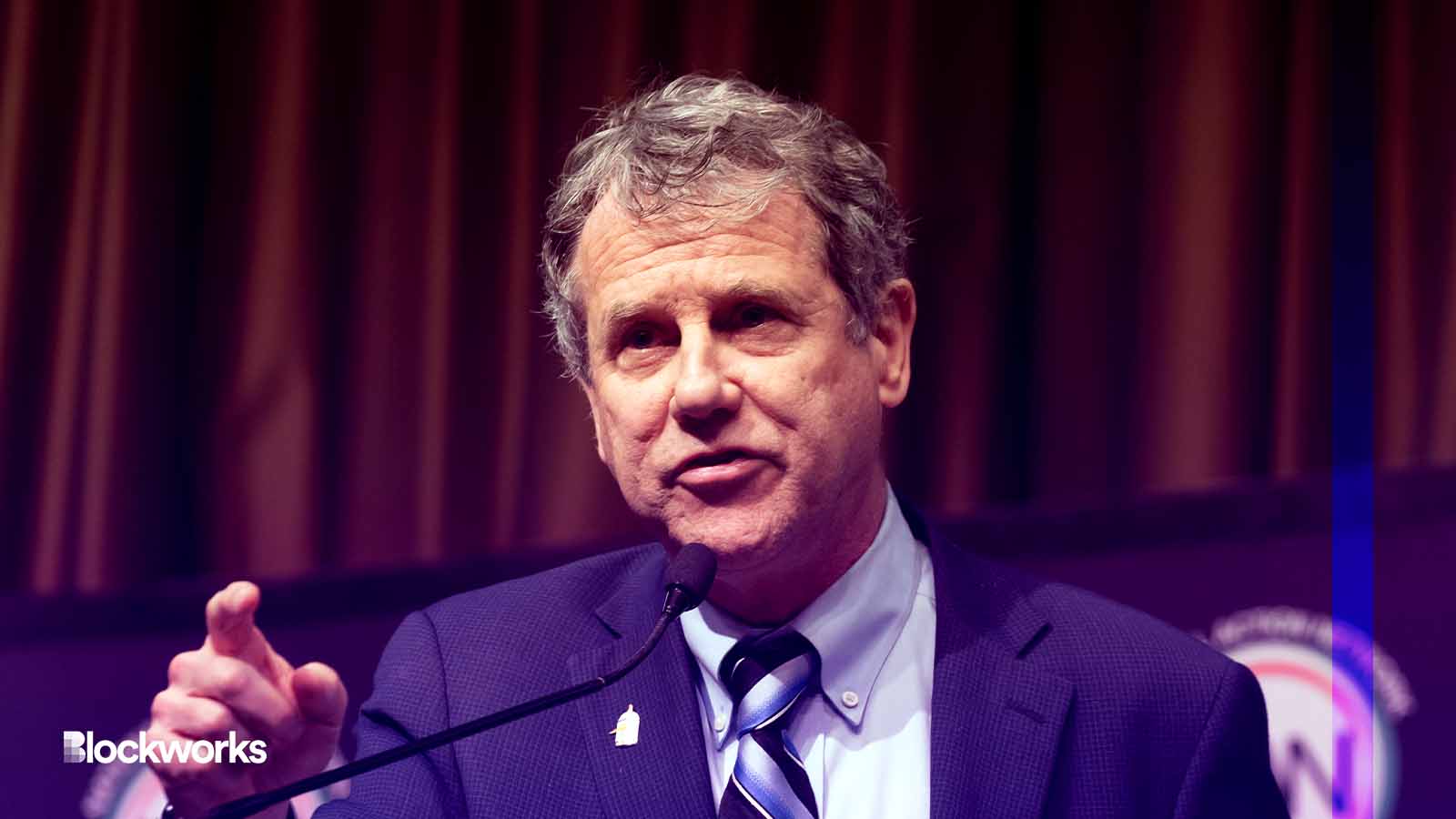Sen. Brown pushes for ‘consistent, comprehensive’ crypto disclosures in letter
Sherrod Brown does not believe that there are clear enough crypto disclosures to protect Americans

US Senator Sherrod Brown | lev radin/Shutterstock modified by Blockworks
Senator Sherrod Brown, D-OH, is concerned about the “troubling lack of customer-facing” disclosures in crypto.
The legislator wrote a letter addressed to Treasury Secretary Janet Yellen, Securities and Exchange Commission Chair Gary Gensler, and Commodity Futures Trading Commission Chair Rostin Behnam.
“I urge you to use existing tools to strengthen transparency and hold bad actors accountable,” he wrote.
Brown hopes that, by addressing the Treasury, CFTC and SEC, the US can “build on our existing disclosure guardrails to effectively target the deficiencies we have observed in digital asset tokens and digital asset platforms.” He’s also requested that the agencies work hand-in-hand with Congress as legislators push crypto-focused legislation forward.
“Some of my colleagues in Congress have proposed merely applying limited disclosure requirements to digital asset tokens. This would be a profound mistake. We cannot water down the high standards that have protected investors and supported businesses for decades,” Brown said.
Brown specifically pushes for “consistent, comprehensive, and accurate disclosures in crypto markets.”
He cites the failures of FTX and Celsius as specific failures, saying that despite the two collapses, “crypto firms have taken no meaningful steps to improve their transparency, leaving customers vulnerable.”
The letter from Brown comes as Congress heads back to Washington to vote on multiple crypto bills. One such bill, the Financial Innovation and Technology for the 21st Century Act, has bipartisan support and seeks to establish joint rulemaking powers between the CFTC and the SEC.
As Blockworks previously reported, it would also clarify how digital assets are classified, specifically stating that an investment contract does not necessarily make a token a security, with the bill’s co-sponsors publishing a fact sheet that pushes for most tokens to be classified as tokens rather than securities.
Get the news in your inbox. Explore Blockworks newsletters:
- The Breakdown: Decoding crypto and the markets. Daily.
- 0xResearch: Alpha in your inbox. Think like an analyst.






